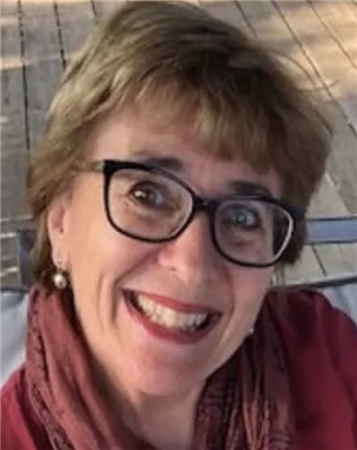
Hilary McLeod, a human resources specialist shared her experience and insights on Change and Transition in the Workplace as a result of COVID.
For the past 14 years she has been an expert in career transition first with LHH Knightsbridge personnel and now with her own consultant company. Hilary was impacted by corporate restructuring 15 years ago and decided to return to school and change careers. She knows whereof she speaks.
For the past 14 years she has been an expert in career transition first with LHH Knightsbridge personnel and now with her own consultant company. Hilary was impacted by corporate restructuring 15 years ago and decided to return to school and change careers. She knows whereof she speaks.
She highlighted 5 topics: the Change Model; Managing a Career Transition; Job Trends and Changes to the Workplace after COVID; Transitions to Active retirement; and Life Transitions.
The Change Model is a U shaped curve that has 5 stages of behaviour. The first stage is the anticipation and anxiety one feels knowing that a change will occur. One may also feel shock. Facing the facts of being “let go” and no longer anchored bring the second stage: fear and anger. When things are in flux a strong sense of disorientation characterizes the third stage. As the change is better understood the fourth stage involves a feeling of reappraisal and acceptance. The fifth stage involves a recommitment to moving forward and one may actual feel a renewal of energy and interest as the new reality comes into focus.
Managing a Career transition is stressful but after the initial shock it can be a time of exploration and change and may lead to a complete career shift. Scary but possibly very rewarding!
In order to make the transition happen, Hilary emphasized the need for one to develop a compelling resume that highlights the relevant transferable skills required in the current job market. For some, this may mean getting professional advice from someone like her to help sort out one’s key accomplishments and talents and craft a unique personal brand. The key question is “Why hire me?”
The resume is important, but so too is a strong “LinkedIn” profile. This social media platform has become a very important tool for individuals going through a career transition. She reported that 90% of hiring managers say they use “LinkedIn” as part of their search and vetting process.
There are key strategies one should keep in mind during a career transition. First, never underestimate the value of continuous learning to stay marketable. There are many ways to expand one’s skillset; online courses are especially useful and accessible. Secondly, develop a network. Over sixty to seventy per cent of new positions can be traced back to networking efforts according to Hilary’s research. Thirdly, one must develop and deliver a clear, concise verbal message on how people can help. Again a career coach can help with this process because many people find it difficult to speak about their strengths.
COVID has accelerated changes in the workplace. Most obvious is the progression of work from site (office) based to remote (home) based. Many organizations are planning to continue some form of remote work post COVID. And employees are ready for virtual work to continue. In addition, younger skilled workers especially are seeking who they want to work for and considering the total compensation package rather than just the “pay packet”. Of course these are the talented ones for which demand is high. Healthcare, e commerce software engineering, web designing, and green technologies are growing industries.
As veteran employees retire, business organizations are speeding up their succession planning. To be resilient, an organization needs a good grasp of the fluidity of the market and of the talent.
Hilary also believes that COVID offers an opportunity to reimagine the workplace and may in fact lead to a more equitable work environment.
Ironically, as the business world emerges from COVID and the economy picks up, Hilary’s work as a career counsellor has slowed down. Happily for her this coincides with her desire to begin “Active Retirement”. While the past decade has been busy and she has found great satisfaction in meaningful work, she is ready to make her own transition again.
For those who are considering “retirement”, she encourages having a transition plan. Each person probably has a different definition of “meaningful”. Leaving or scaling back paid employment does not mean that there is no longer value or purpose in our lives. Consider the other domains of life—family, friends, personal activities, and spiritual acts. These areas may become more significant once “work” decreases or ends.
The final slide Hilary shared contained quotations that you may find useful.
“The best way to find yourself is to lose yourself in the service of others.” M.K.Gandhi
“Life is 10% what happens and 90% how you react to it.” C. Swidall